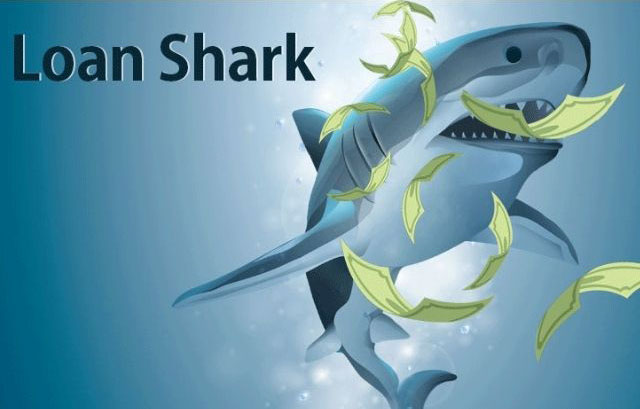What Does It Mean to Be A Loan Shark?
Susan Kelly
Jan 28, 2024
Loan sharks offer borrowers interest rates that are often far higher than any legal rate that has been set; even in tight financial situations, there are other options.
The Workings of a Loan Shark
A person inside a personal or professional network who makes an offer to give loans at very high-interest rates is considered a loan shark. They may be discovered in communities with limited access to banking services, the internet, or personal networks. Typically, their financial backing comes from untraceable sources, and they do work for either personal firms or organizations that are not officially recognized.
Loan sharks do not need their customers to check their credit reports or background. They want to lend big quantities of money to accumulate a significant amount of interest in a very short period. When it comes to interest rates, loan sharks offer rates that are far higher than licensed ones. For example, a loan shark may give someone a loan of $10,000 with the stipulation that they pay back $20,000 within the next thirty days. These creditors may also often demand that the debt be repaid at any moment, and they may resort to violence as a kind of compulsion to get payback.
How to Recognize a Predatory Lender
Checking the Financial Services registration or the website for Loan Smart can tell you whether or not a potential lender is authorized to provide financial loans. If they are not on the list, they are not allowed to lend money lawfully. After browsing through the registry, if you are still uncertain about whether or not a lender is genuine, you should immediately get in touch with the FCA. Checking to see whether the FCA authorizes a lender is one way to determine whether or not someone is a loan shark; however, the following warning flags may also suggest that someone is a loan shark.
- A cash loan was made available to you. Loan sharks often handle monetary transactions, but you should be aware that they may also do business online.
- An absence of necessary documents. You may expect any legitimate lender to provide you with the appropriate documentation that details the loan conditions. Loan sharks will not provide you with a written agreement in most cases.
- There is a lack of transparency about the loan's parameters, such as the interest rate and repayment terms. Loan sharks can be evasive about the interest they charge and the specific date on which the loan must be repaid.
- Lending with no credit checks being done. Loan sharks, as opposed to authorized lenders, will not perform credit checks or analyze the borrower's capacity to repay the loan.
- They are retaining any of your belongings as a kind of security. Loan sharks have been known to demand "security" for a loan by demanding valuables or goods such as a person's passport or bank card. They do this on the pretense that the items would protect the borrower.
- Behavior that is both threatening and aggressive. If you cannot repay the debt, loan sharks may resort to coercion and physical violence, something legitimate lenders would never do.

Comparison of Payday Lenders and Other Alternative Lenders
When it comes to giving loans at very high-interest rates for incredibly short periods, certain payday lenders may come dangerously close to approaching the level of loan sharks. However, these interest rates could not violate any laws. Standard usury regulations normally provide a cap on the amount of interest that a lender can charge its customers, with some states allowing as much as a 45 percent annual percentage rate.
Payday lenders are not recognized for using abusive methods to recover debts; nonetheless, they provide short-term rates on payday loans with excessively high-interest fees, making it impossible for a borrower to return the loan. In most cases, if a borrower is behind on their payday loan payments, the lender will pursue conventional collection methods, which include reporting late payments and defaults to credit bureaus.

New alternative lenders have entered the credit market in recent years, expanding the loan options available to consumers and enterprises. These creditors provide alternative financial instruments that are analogous to conventional loans. The requirements for taking out many of these loans will be lowered, which will result in a wider section of the population being able to afford credit more easily. The application processes for the loan will, for the most part, be comparable to those for typical conventional loans. On the other hand, loan applications are almost always processed via an automated system, and lenders are eager to work with borrowers even when disagreements emerge. Many borrowers may get loans from these financial institutions with varied interest rates and principal amounts.







